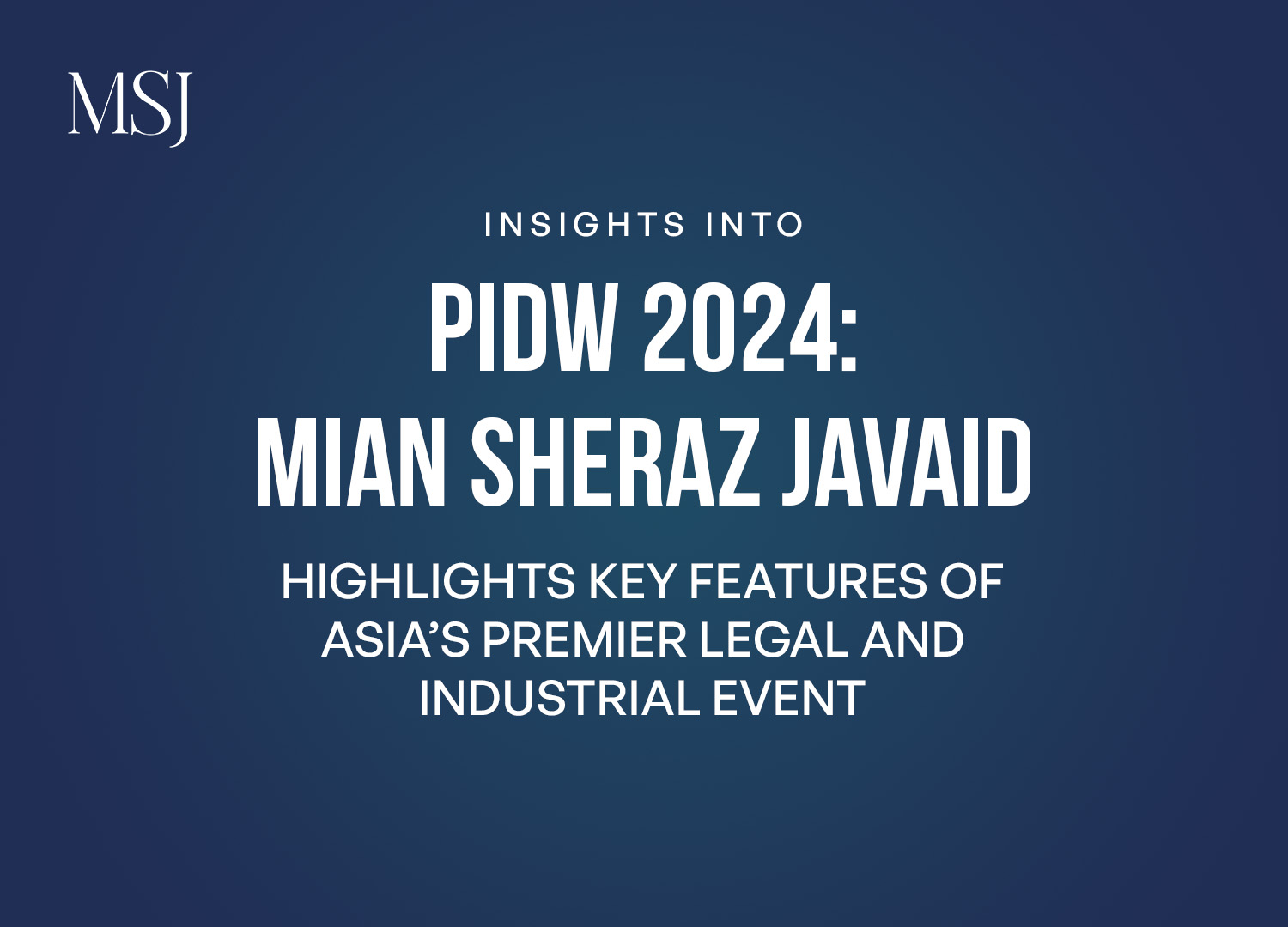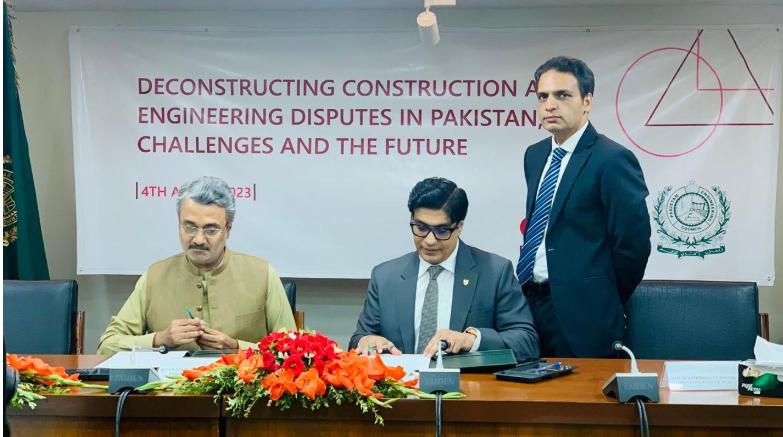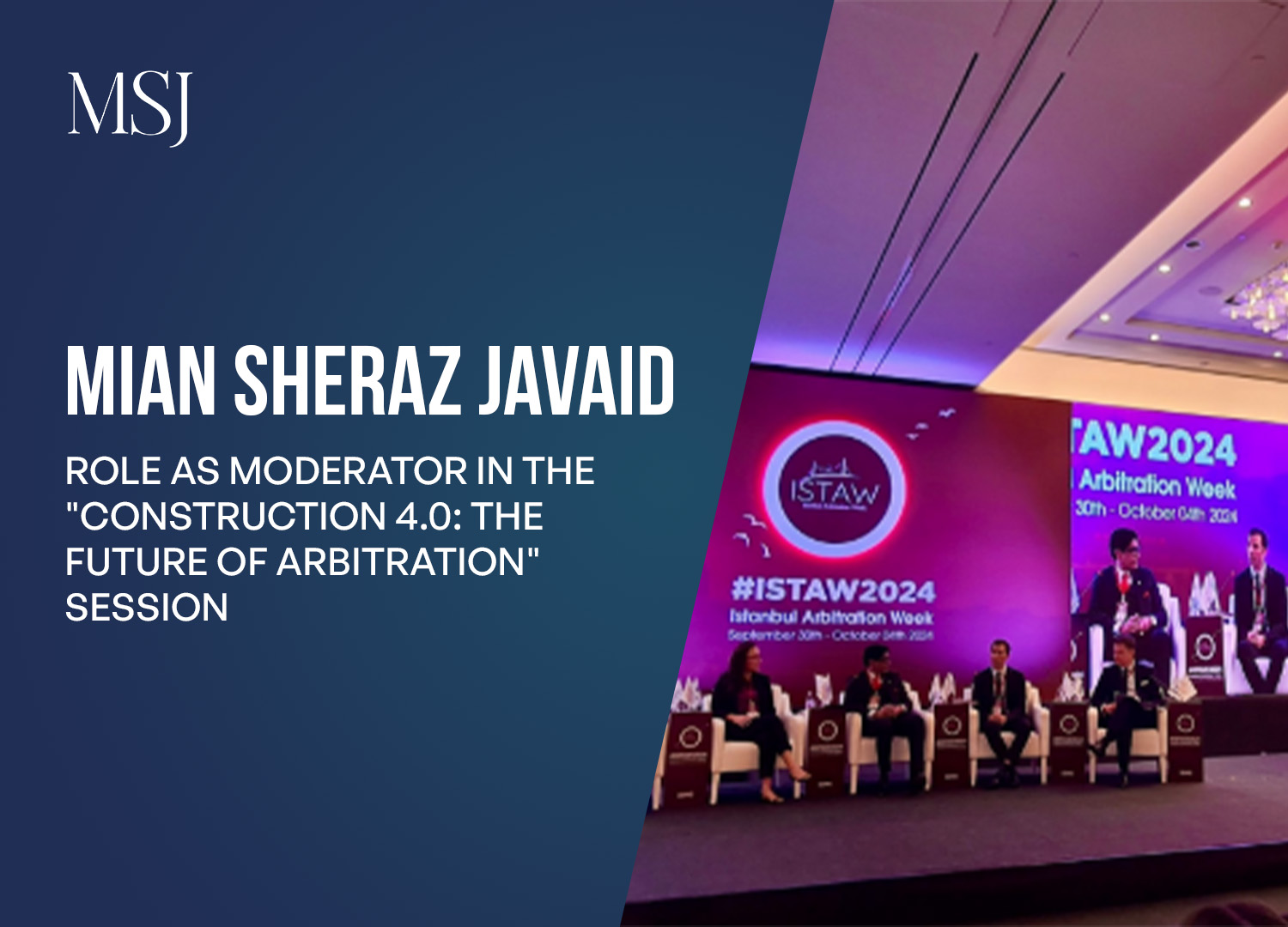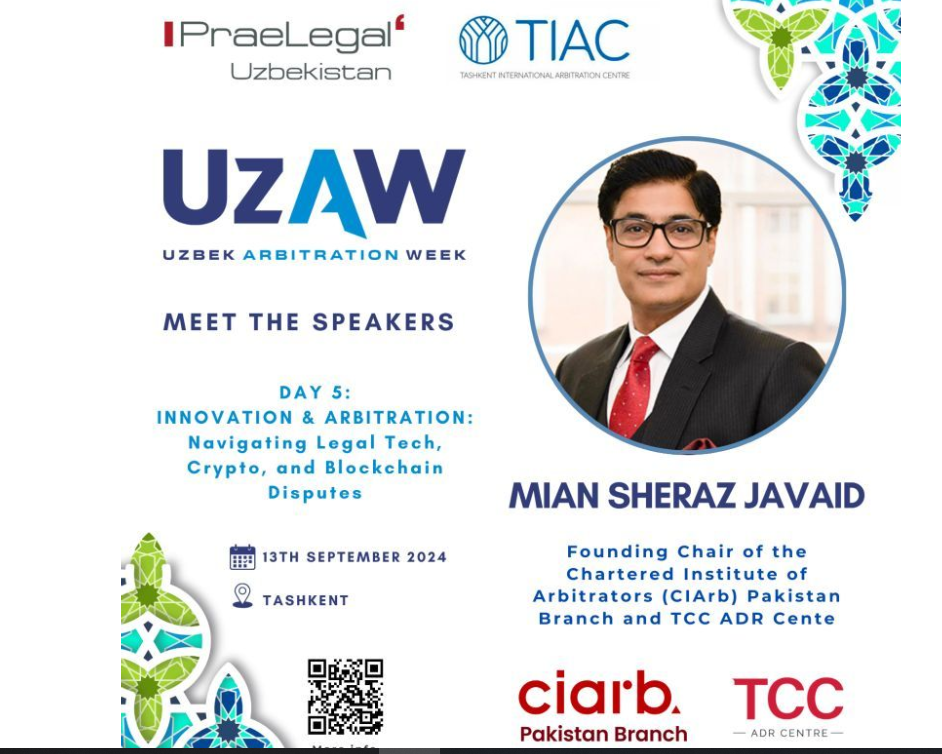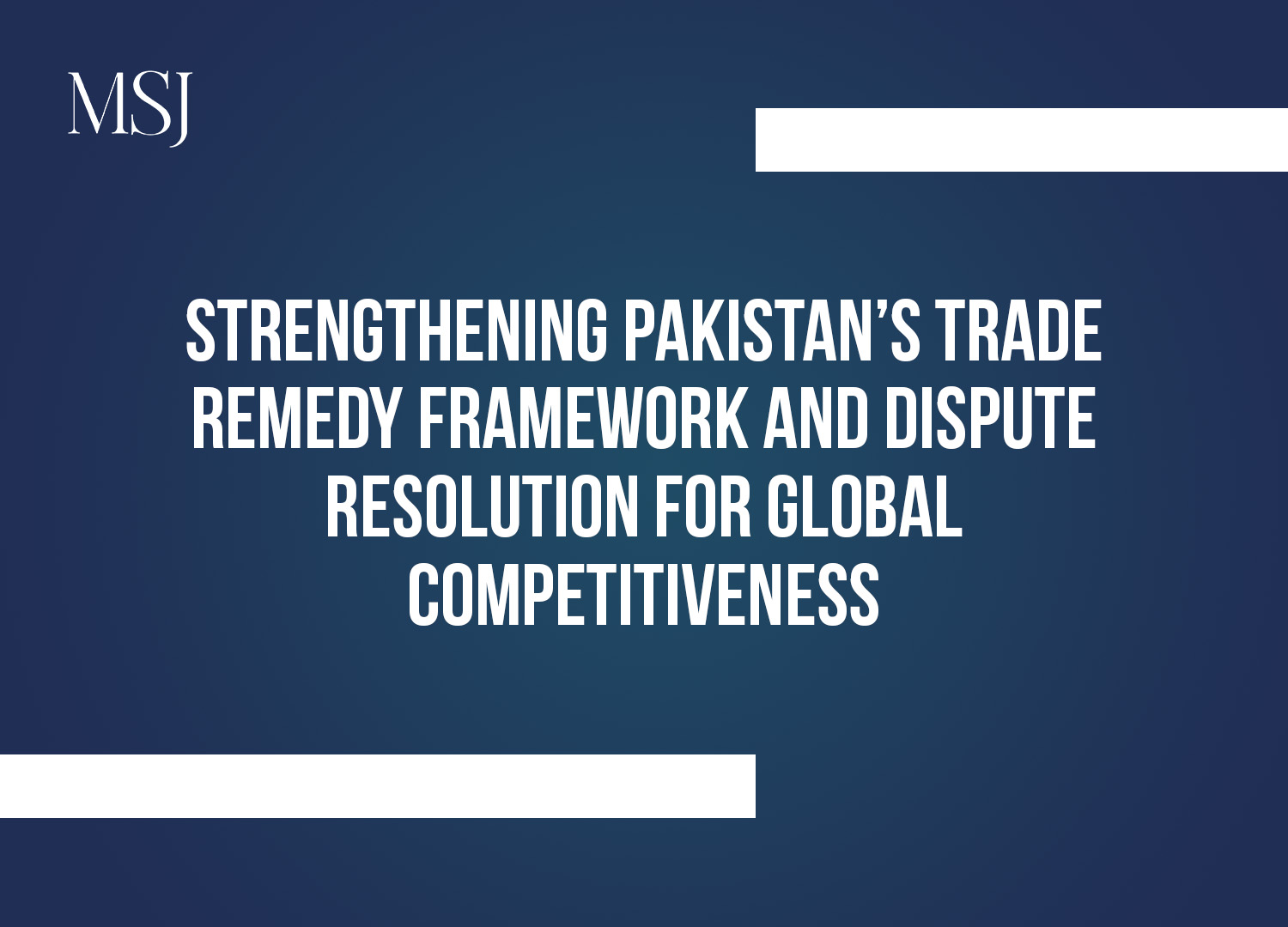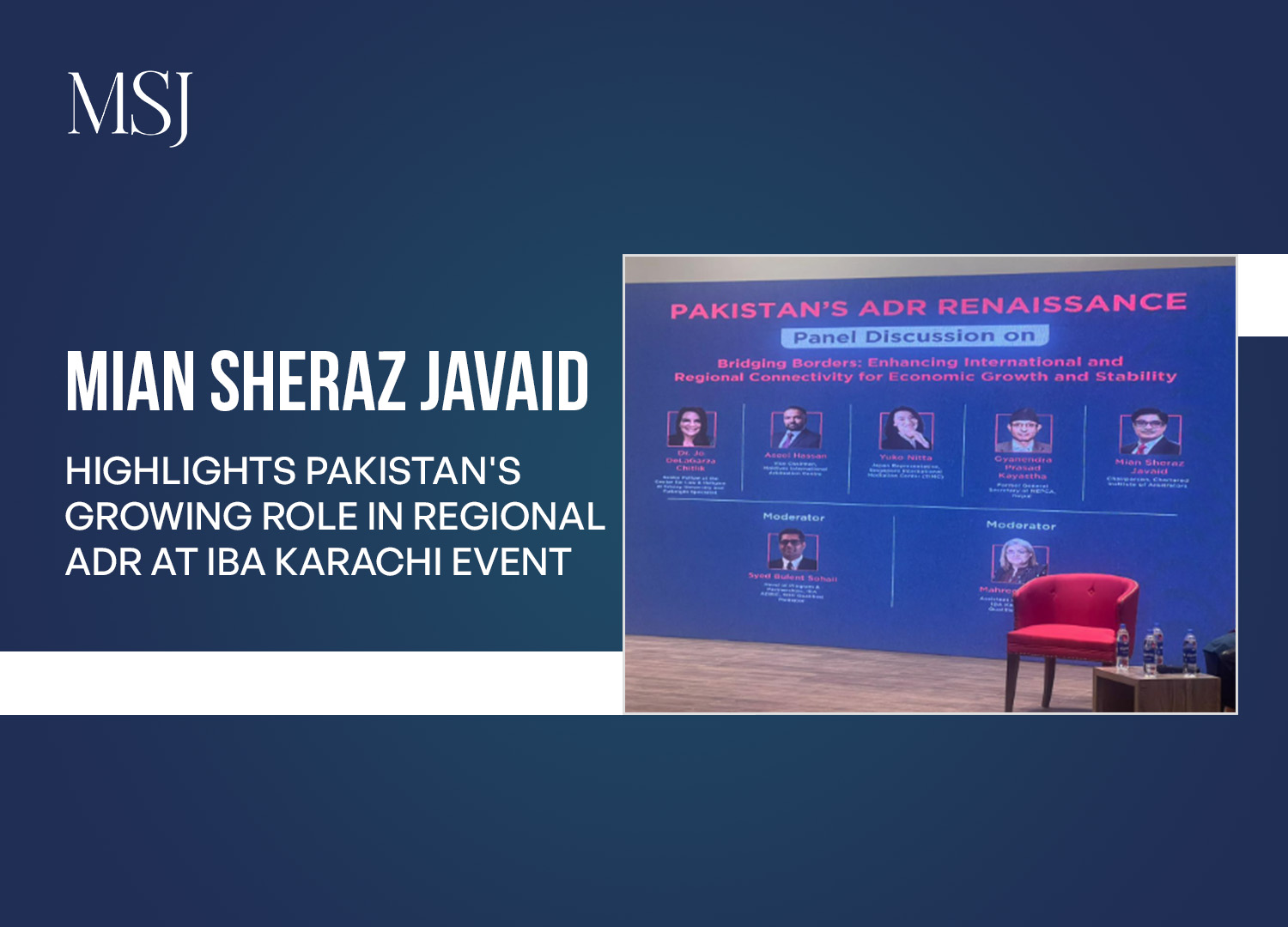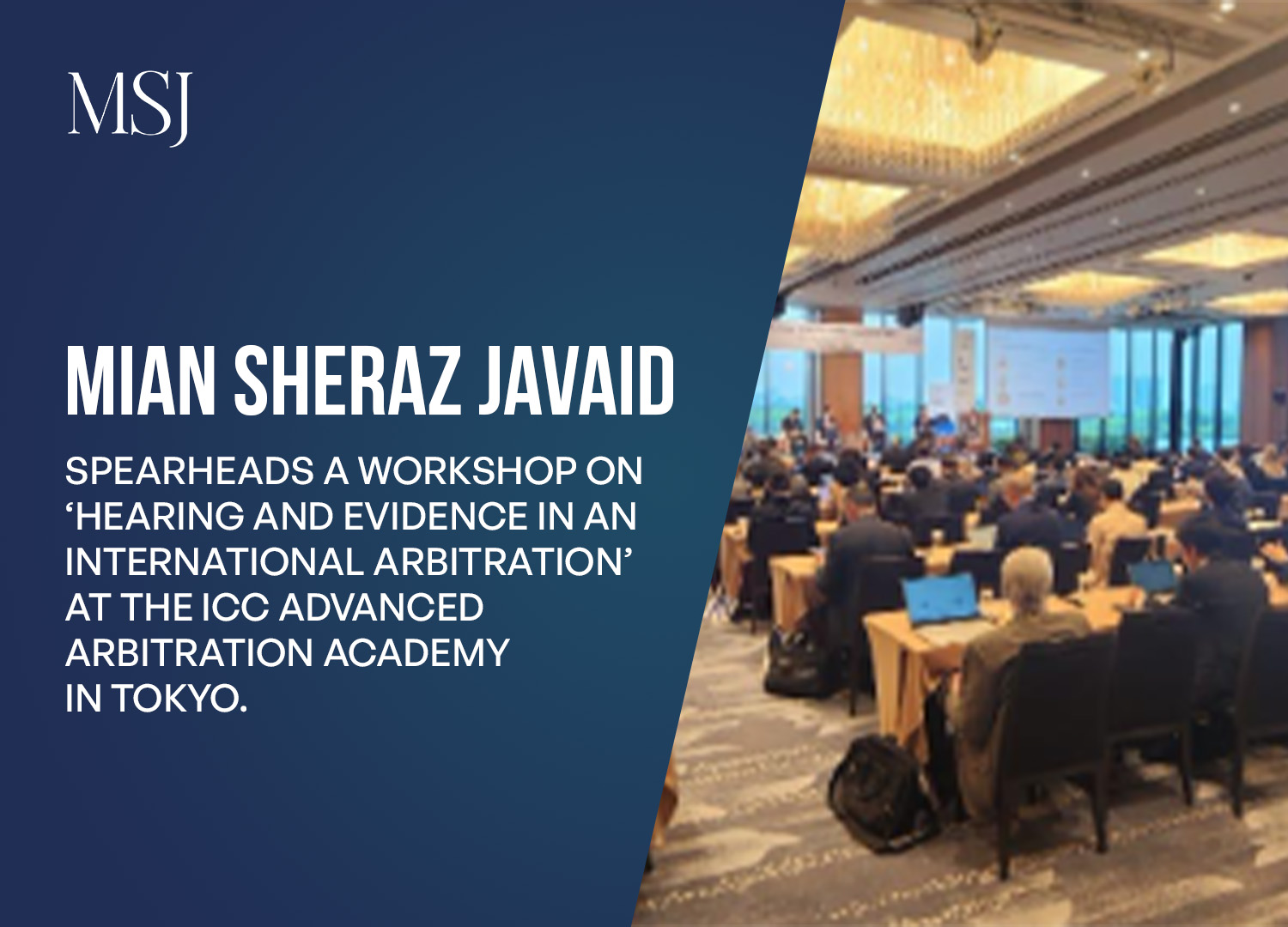Mian Sheraz Javaid Reflects on the Transformative Impact of Pakistan International Disputes Weekend in New Article
PIDW, which is now regarded as Asia’s premier legal and industrial event, was co-hosted by the Pakistan Branch of the Chartered Institute of Arbitrators (Ciarb), MK Consultus LLP, and TCC ADR Centre in Lahore on May 20th and 21st, 2023. Sheraz, in his article, emphasises that PIDW’23 was more than just an event—it was a significant milestone marking the beginning of Pakistan’s journey toward 'reviewing, reflecting, and reviving’ its legal landscape, with a particular focus on alternative dispute resolution (ADR) and arbitration practices.
A major theme of Sheraz's article is its ability to bring together all key stakeholders, namely senior judicial figures from Pakistan's High Courts as well as experts from the legal, industrial, and regulatory sectors. It is this overlap that lends an ambience of collaboration, making PIDW far removed from any traditional legal conferences, which usually boast such a representative population of Pakistan's legal ecosystem. The forum permitted rich discussions of controversy around the relevance of dispute resolution in encouraging trade and foreign direct investment in Pakistan, a challenge that has heightened in importance more recently than others.
Sheraz’s article has discussed how the conference PIDW'23 catalysed reformations in Pakistani legislation and more positively facilitated business exchange across national boundaries. Networking was among the most excellent virtues of the occasion, which is highly considered but hardly observed in most expansions of a business. This allowed delegates coming from all four corners of the world to access Pakistani legal professionals and industry leaders on one platform, through which new opportunities for collaboration would arise and opportunities for business expansion would emerge. These meetings, as observed by Sheraz, didn't just simply make introductions; they paved the way toward actual, pragmatic outputs in business ventures between foreign consultants, law firms, and domestic practitioners.
The event also saw a range of specialised panel discussions, featuring seasoned practitioners from around the world. These discussions covered a broad array of topics that continue to shape the discourse around Pakistan’s legal development. Key areas of focus included strategies to enhance litigation procedures, promoting arbitration as a tool to attract foreign investment, and the increasing importance of mediation as a necessary pre-litigation step for resolving disputes. The carefully curated panels provided a holistic view of the evolution of dispute resolution in Pakistan, making it clear that the future of the country’s legal framework hinges on embracing ADR mechanisms to streamline and modernise its processes.
Among the highlights of PIDW’23 was a panel dedicated to the “Introduction of Pakistan’s Proposed Domestic Arbitration Act 2023.” Sheraz stresses how this panel discussion became a launchpad for the production of the Arbitration Act 2024, a key piece of legislation that will help modernise the country’s arbitration framework. The Act, which amends the pre-colonial and pre-partition Arbitration Act of 1940, is now in the final stages of being tabled before the National Assembly for enactment. The efforts around this legislation were driven by the esteemed leadership of the ‘ADR Reform Committee,’ which was established by the Chief Justice of Pakistan and headed by the current Senior Puisne Judge of the Supreme Court, Honourable Mr. Justice Syed Mansoor Ali Shah.
Sheraz further explains that the Arbitration Act 2024 is meant to modernise the approach of Pakistan towards dispute resolution by making arbitration more streamlined and efficient and thus more accessible. The Act will help to make Pakistan an attractive destination for foreign direct investment because it offers a clear and predictable process of resolving disputes. Sheraz writes that this reform will have wide-ranging implications for Pakistan's legal infrastructure and its place in the world.
Sheraz notes that after PIDW'23, there has definitely been a change in the legal landscape of Pakistan. There's growing interest in training in a variety of ADR disciplines, mainly among professionals such as engineers, construction experts, lawyers, and accountants. Sheraz views this as an important development because it has helped to pool together a number of locally-trained experts enjoying internationally standardised skills. These experts are currently working their way into the resolution of disputes within Pakistan's legal ecosystem, and the more they do so, the more dynamic and forward-looking the approach to dispute resolution will become.
The momentum generated by PIDW’23 also extended to the academic realm, with universities across the country beginning to integrate ADR concepts into their curricula. Sheraz’s article underscores the importance of this move, noting that it will help cultivate a new generation of professionals who are well-versed in ADR practices from the outset of their careers. By embedding ADR into the educational system, Pakistan is preparing to equip its next wave of professionals with the tools they need to navigate an increasingly complex and interconnected global legal environment.
Moreover, the impact of PIDW'23 has been international. Sheraz underlines the fact that DRBF is expanding to Pakistan directly due to the momentum generated by PIDW. The DRBF expansion to Pakistan indicates that there is a growing interest in ADR mechanisms in the country, particularly in the construction and infrastructure sectors. This further positions Pakistan as a critical player in the global ADR ecosystem.
As Sheraz reflects on the journey from PIDW’23 to PIDW’24, he emphasises the role of the upcoming event in Karachi as a critical continuation of the progress made in the past year. PIDW’24 is expected to build on the achievements of PIDW’23, with a strong focus on enhancing mediation practices and promoting the introduction of a new mediation act to align Pakistan with international best practices in dispute resolution.
The article therefore ends on a positive note, positing that this ripple effect of the PIDW '23 will soon be felt even as the nation progresses towards modern, efficient and accessible mechanisms in dispute resolution. Sheraz thus paints a growing and evolving Pakistani legal landscape, growing increasingly attuned to the call of international trade, investment and collaboration. Through events like PIDW, Pakistan is poised to remain at the forefront of legal innovation and dispute resolution in the years to come.
With PIDW’24 just around the corner, Sheraz’s article serves as a powerful reminder of the lasting impact of PIDW’23 and the continued potential for growth and reform in Pakistan’s legal and business sectors.
This article was published in The Nation and can be read here.


